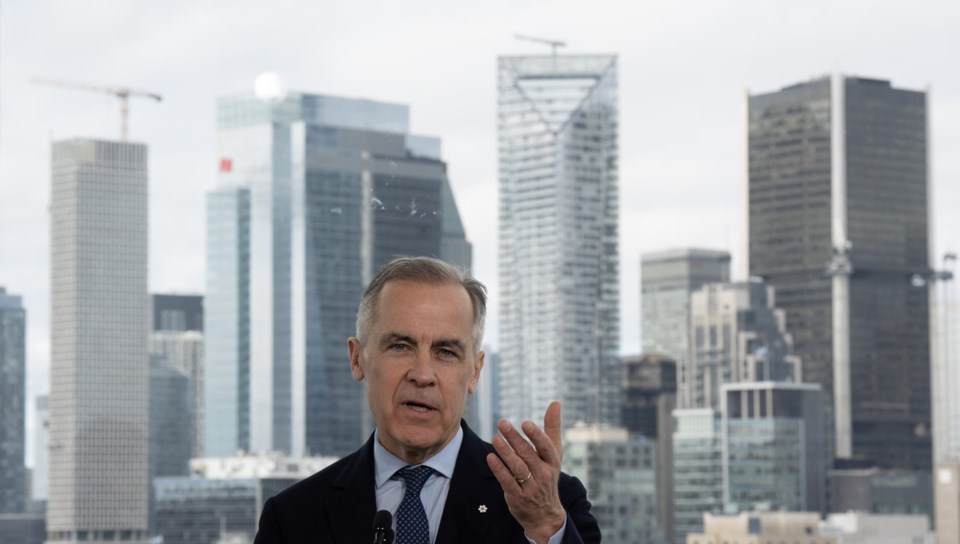OTTAWA — The Conservative and Liberal leaders are promising measures to bolster Canada's economy in the face of the trade war with the U.S., as the NDP pledges to make sure more Canadians have access to a family doctor.
Party leaders spread out across the country to make announcements on Day 14 of the federal election campaign, with the Liberals outlining a plan to support skilled trades, and the Conservatives vowing to cut bureacratic red tape.
In Oakville, Ont., Liberal Leader Mark Carney said that without taking action, Canada will see a shortfall of tens of thousands of skilled workers.
He said he would introduce a new apprenticeship grant, increased access to union-led training initiatives and a new $20 million capital funding stream for colleges to support new training spaces for apprenticeships.
The Liberal plan would also increase labour mobility between provinces and territories, in an effort to “build one Canadian economy” — a reference to removing interprovincial trade barriers that have become increasingly a topic of concern since U.S. President Donald Trump was elected.
"Our task as a nation over the coming weeks and months and years is to think bigger, and to act bigger, to build Canada strong," Carney said, referring to his campaign slogan.
"That starts right here. That starts by investing in our workers — crane operators, bricklayers, welders and those in the specialized trades that are essential to the future of Canada."
Carney's announcement follows a week of him signalling to Canadians he is serious about strengthening the economy in the face of threats from the White House, spending much of his week in factories and training schools.
In B.C., Conservative Leader Pierre Poilievre promised to cut bureaucratic red tape by 25 per cent in two years. The plan for what he calls a "two-for-one" law would mandate two regulations be repealed for every new one that is brought in. It would also require that for every dollar in new administrative costs, two dollars must be cut elsewhere to ease the burden.
"Today, the federal government imposes 149,000 individual rules on our small businesses," Poilievre said. "The burden is staggering. $51 billion of administrative costs on small businesses alone due to federal red tape."
He said "this of course has been great news for president Trump, who wants to steal our jobs and opportunities, and that's why more and more money is moving south, jobs, resources along with it."
A news release from the Conservatives says red tape has blocked major infrastructure projects and investment.
Meanwhile, NDP Leader Jagmeet Singh was in Atlantic Canada, where he promised to ensure all Canadians have access to a family doctor by 2030. He said an NDP government would offer an additional one per cent in Canada Health Transfer funding to provinces that guarantee access to a family doctor.
"I believe that everyone in our country should be able to have a family doctor," he said. "I don't see a province that would say no to additional funding to achieve that goal."
With just over three weeks left until Canadians vote on April 28, polls indicate the Liberals are leading the Conservatives in Canadians’ voting intentions.
A new poll from Leger suggests more than one in five people planning to vote for the Liberals are being motivated by their belief that Carney is the best option to deal with Trump.
The poll suggests Poilievre's ability to stand up to Trump is driving the vote of only a small number of people who said they're voting for his party, as Conservative voters appear to be more motivated by anti-Liberal sentiment and a desire for change.
The poll, conducted by Leger for the Association for Canadian Studies, surveyed 1,628 people between March 29 and 31. The polling industry’s professional body, the Canadian Research Insights Council, says online surveys cannot be assigned a margin of error because they do not randomly sample the population.
This report by The Canadian Press was first published April 5, 2025.
-- With files from Alessia Passafiume in Oakville, Maura Forrest in St. John's and Catherine Morrison in Ottawa.
Anja Karadeglija, The Canadian Press



